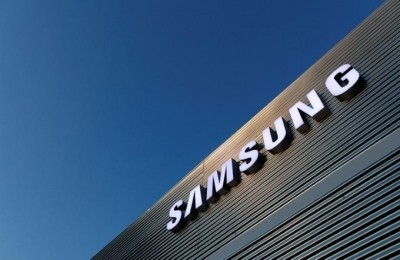
Seoul, Samsung Electronics is expected to report more than 15 percent rise in operating profit for the second quarter, helped by strong semiconductor business despite slowing demand for smartphones and home appliances, a report showed on Tuesday.
The world's largest memory chip maker is forecast to log 14.5 trillion won ($11.1 billion) in operating profit in the April-June period, up 15.6 per cent from a year ago, according to the survey by Yonhap Infomax, the financial data firm of Yonhap News Agency.
Samsung's Q2 sales are estimated to increase by 20.6 per cent to 76.8 trillion won, while net income is likely to jump 19.8 per cent to 11.5 trillion won, the survey showed.
Strong demand for memory chips used in servers and data centers supported the tech company's solid performance, with global shipments of DRAM and NAND Flash both growing in the three months ending in June by 9 per cent and 2 per cent on-year, respectively.
By sector, Samsung's chip business is forecast to grow 42 per cent to report an operating profit of 9.8 trillion won.
The growth in its smartphone business, however, seems to have weaken due to slower spending on consumer electronics amid surging inflation and recession fears.
Samsung's smartphone shipments are estimated to come in at 61 million units in the second quarter, a 16 per cent drop from the previous quarter. Operating profit of the division is likely to drop 600 billion won from last year to 2.6 trillion won.
Sales of home appliances are also hit by consumer's weaker spending power, rising costs of raw materials and seasonality factors. Operating profit of the division is forecast to be around 500 billion won, less than half the figure from a year ago.
The display panel business is also likely to report weaker performances on slower demand, with the second quarter operating profits forecast to decline by 300 billion won from a year ago to 1 trillion won.
Analysts are painting a bleak picture for the second half, as the ongoing war in Ukraine, rising inflation and China's COVID-19 lockdowns are dragging down demand for, and consumer spending on, electronic devices.
Global shipments of consumer devices, such as mobile phones and PCs, are on pace to decline 7.6 per cent this year, according to technology research firm Gartner.


.jpeg)

